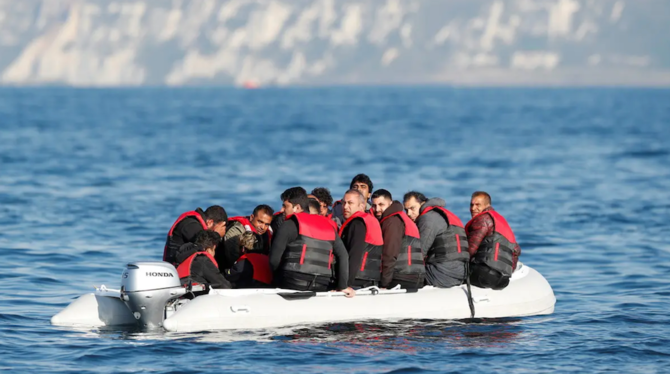The EU-wide relocation system launched in June and touted as a major step forward in the reform of migration policy has so far resulted in 117 asylum seekers being transferred across the bloc – out of an annual target that envisions 8,000 pledges.
“We’re working very closely with all member states to ensure that we have in place a common solution,” a European Commission spokesperson said on Monday while announcing the numbers.
“I know this number doesn’t seem like a lot but we need to keep in mind that we have 8,000 pledges as such.”
The low figures come as asylum applications reach highs not seen since the 2015 migration crisis. August alone saw 84,500 requests lodged, with Afghans and Syrians leading the count.
The gradual rise in border crossings is fuelling tensions between EU countries, who continue to disagree on a common migration policy to manage new arrivals.
Relations between France and Italy have deteriorated over the disembarkation of the Ocean Viking, a ship that Rome did not allow to disembark despite its obligation under international law.
The vessel, operated by the humanitarian organisation SOS Méditerranée, had 234 people on board, including 57 children. Some of them had been stranded on the vessel for 19 days, raising fears of loss of life.
French Interior Minister Gérald Darmanin called Italy’s actions “inhumane” and “incomprehensible,” arguing the vessel was in Italian waters and was therefore required to disembark somewhere in Italy.
Italian Prime Minister Giorgia Meloni said she was struck by the “aggressive reaction” from Paris, which she deemed “incomprehensible and “unjustified.”
Under current EU rules, asylum applications have to be processed by the first country of entry. By refusing arrival, a state can forgo such responsibility and pass it on to another country.
In a bid to strike a more balanced and predictable system, 18 EU countries, together with Norway, Switzerland and Liechtenstein, signed in late June a declaration launching the Voluntary Solidarity Mechanism (VSM).
Austria, Denmark, Poland and Hungary were among those who turned down the initiative.
The joint statement lays out a brand-new scheme to enable the transfer of asylum seekers from Southern countries to other states across the bloc.
It only applies to people in need of international protection who arrive via the Mediterranean route, giving priority to those considered “most vulnerable.” This would exclude certain nationalities, such as Indian, Moroccan and Turkish, whose applications have broken records in recent months.
‘Unequal notion of solidarity’
Upon its signature, the voluntary mechanism, promoted by France during its six-month presidency of the EU Council, was hailed as a “historic agreement” and a potential prelude to a permanent and efficient relocation system, one of the main priorities pursued by the European Commission and southern EU countries.
The mechanism works on the basis of national pledges, which are designed according to population, GDP and political priorities.
Each country commits to either host asylum seekers or provide financial support to those who do.
Out of the 21 countries who participate in the scheme, 13 have made relocation pledges, with the majority coming from France and Germany, while the others have chosen to offer financial assistance instead.
In total, countries have committed to relocating 8,000 asylum seekers between June 2022 and June 2023.
An internal document leaked by the research NGO State Watch revealed that a “political goal” that initially sought to relocate 3,000 people by the end of the year had been downgraded to a more feasible target of 1,000 people. A European Commission spokesperson refused to comment on the targets but did not deny them.
But according to the EU executive’s latest update, just 117 relocations have been completed by mid-November, amounting to a mere 1.46% of the annual 8,000 objective.
As the mechanism is entirely voluntary and not legally binding, the European Commission is unable to enforce the compliance of national pledges. The European Parliament and the European Court of Justice are equally excluded from carrying out oversight.
The system also has an opt-out clause that countries can invoke to halt relocations if they consider their migration systems to be under “disproportionate pressure.”
Experts have criticised the scheme for its absence of legal foundations and the selectiveness inherent in the relocation process, which allows states to decide who to welcome and who to reject.
An analysis by the Centre for European Policy Studies (CEPS) said the scheme was fraught with a “profound lack of foreseeability and predictability” and gave preference to an “intergovernmental, asymmetric and unequal notion of solidarity.”
Despite the criticism and the low results achieved so far, the European Commission defends the mechanism as a temporary solution to ease the burden of southern EU countries and manage the issue of disembarkations.
Following the Ocean Viking incident, French Interior Minister Gérald Darmanin said nine European countries had committed to hosting two-thirds of the rescued migrants, with the remaining third staying in France.
“France has launched a call of solidarity to member states and others have responded positively,” said a Commission spokesperson.
euronews



